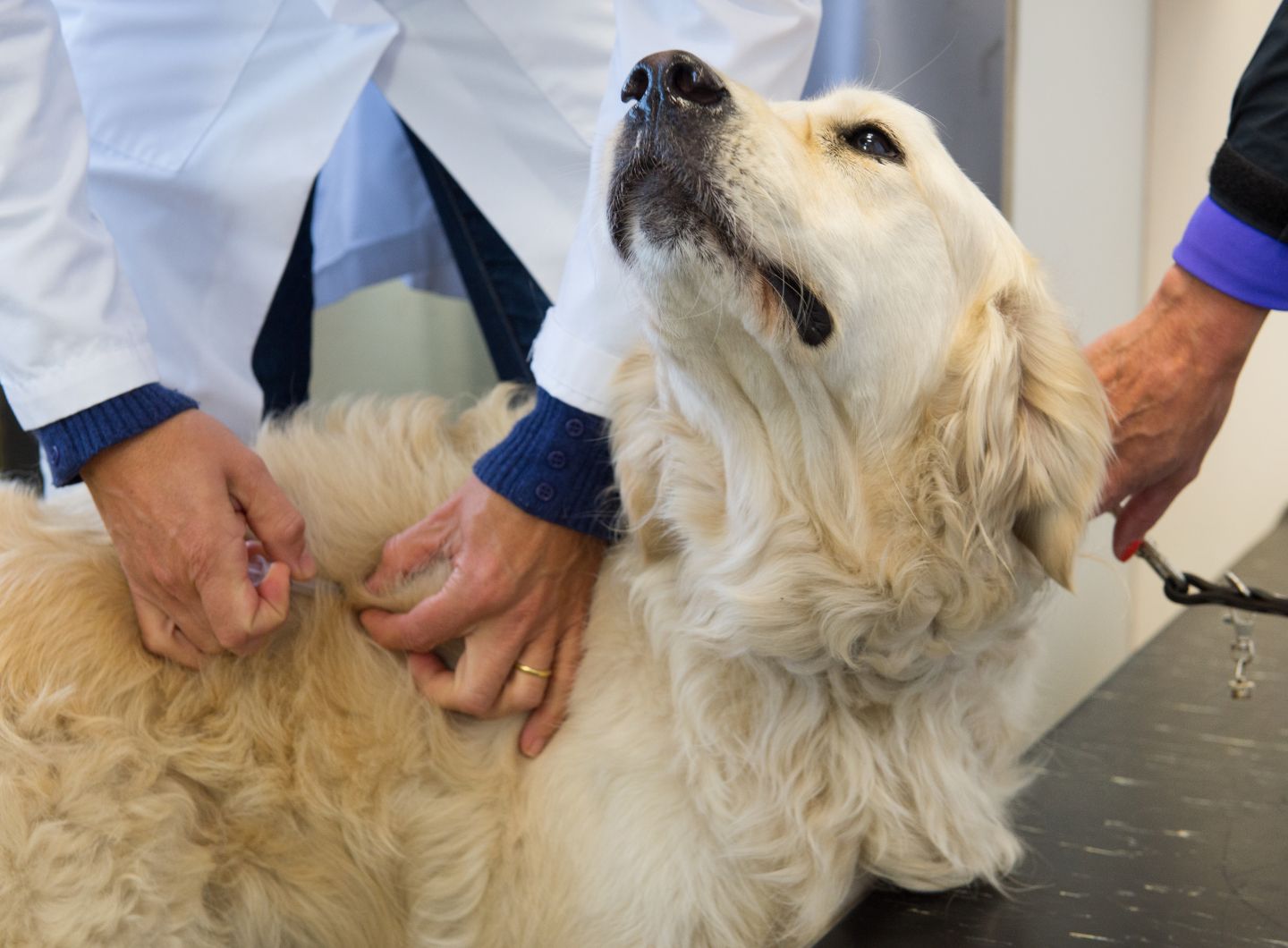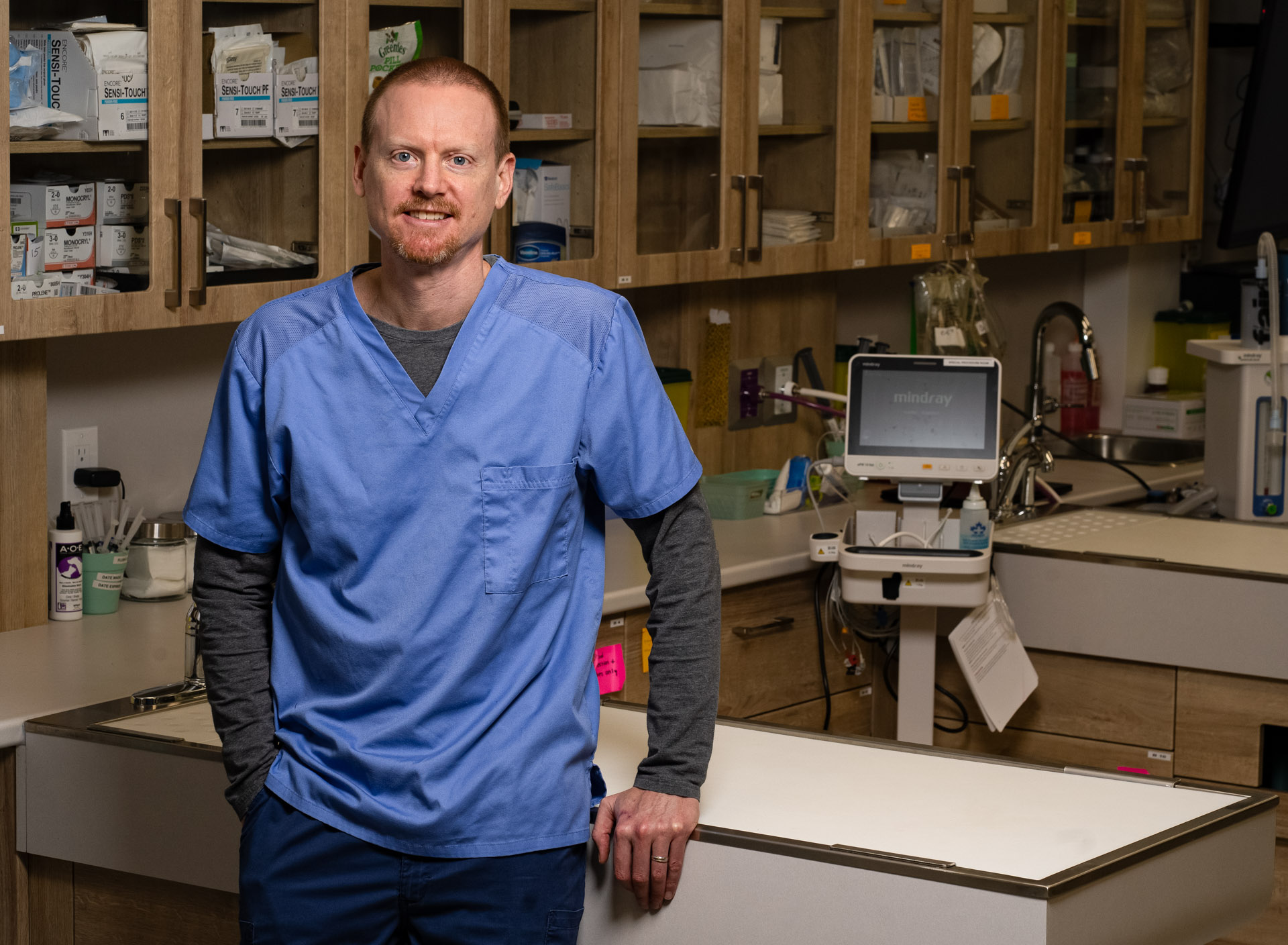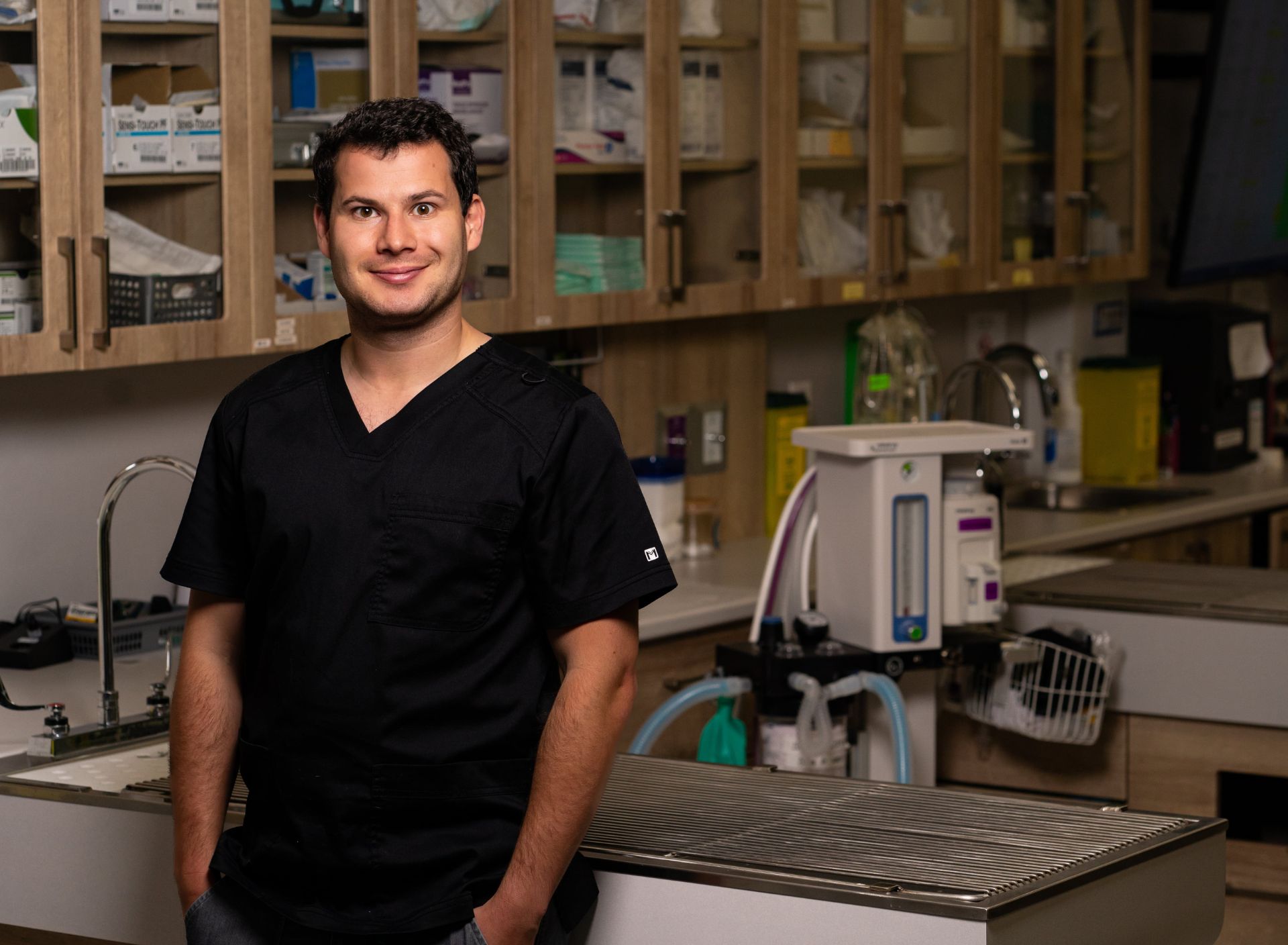Who is a Veterinary Dermatologist?
A veterinary dermatologist is a board-certified specialist in diagnosing and managing skin, hair, ears, and nail conditions. A dermatologist undergoes extensive training to acquire the specialized skills to diagnose and treat dermatologic diseases. This training involves completing veterinary school to become a veterinarian (4 years), an internship program (minimum of 1 year), and an approved 3-year dermatology residency training program. After this training, the veterinarian must complete and pass multi-day examinations to become a board-certified veterinary dermatologist.

Our Dermatology Specialists

Dr. Andrew Lowe
Veterinary Dermatologist
Learn More »

Dr. Robert Ward
Learn More »
When Should Your Pet See Our Dermatologists?
Our dermatologists are willing to see your pet anytime they have a concern with their skin or ears. We accept referrals from primary care veterinarians and self-referrals directly from owners. Some of the more common changes that warrant concern are:
- Excessive scratching
- Excessive licking of the legs, feet, or body
- Chewing or biting skin
- Scooting or rubbing against carpet or other surfaces
- Red or irritated skin or ears, or skin lesions
- Flaky, dry skin
- Hair loss
- Repeated rubbing of the face or ears
- Skin infections
- Ear infections
What Are Some of the Common Conditions Our Dermatologists Treats?
- Skin allergies
- Infectious skin conditions, such as fungal (e.g., ringworm), parasitic (e.g., scabies), and bacterial diseases
- Autoimmune skin conditions
- Endocrine (hormonal) diseases, such as hypothyroidism and Cushing’s disease
- Ear conditions
What Are Some of the Tests Our Dermatologists Uses for the Diagnosis and Monitoring of Dermatologic Conditions?
- Intradermal allergy testing to aid in diagnosing and managing this allergic skin disease.
- High-definition video otoscopy allows visualization and biopsy, if necessary, deep within the ear. This is another valuable tool to help diagnose and manage chronic ear infections commonly associated with allergies and other conditions, such as polyps, tumors, or foreign bodies within the ear canal.
- CT scans are used if a disease in or around the middle and external ear canals is suspected.
- Skin scrapings
- Skin biopsies
What Types of Medications are Often Required?
- Oral medications
- Topical treatments and shampoos
- Hypoallergenic injections
- Anti-allergy injections (e.g., Cytopoint)
What Should You Expect When Booking an Appointment with our Dermatologists at Capital City Specialty & Emergency Animal Hospital?
If your primary care veterinarian is referring your pet, we will contact you as soon as possible to schedule your appointment. If you are doing a self-referral for your pet, please either call (613 244 7387) or email (at dermatology@capcityvet.com) our team directly. One of our team members will schedule you into the next available appointment slot. Our regular schedule is Tuesday to Friday from 9 a.m. until 5 p.m.
On the day of your appointment, you and your pet will be checked in at reception and brought to the dermatology examination room. Our dermantologists will discuss your pet’s history, including current and previous diet and medications, with you and thoroughly examine your pet’s skin, ears, paws, and nails.
After this examination, they will thoroughly discuss the examination findings with you and will make a treatment plan that best suits your pet, their condition, and your involvement. The entire process will take approximately 60 minutes.
If medications are required, a treatment plan and medications will be sent home with you with detailed instructions.
A thorough report will be sent to you and your primary care veterinarian, including findings, diagnosis, treatments, follow-up recommendations, and a review of the conditions/diseases. This will ensure that we are all included as a team to provide continuity of care for your pet.
We strive to provide you and your pet with the highest level of care. We love what we do, we love our patients, and we treat them as if they were our own.


